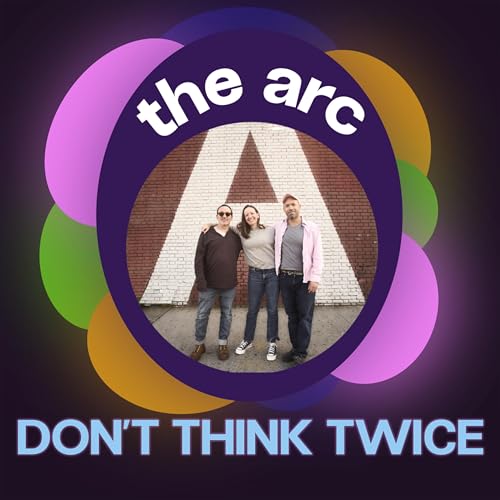EPISODE SUMMARY:
This episode is a discussion of whether we are talking about a "film" or a "movie" (one is "better" than the other) and there is talk about whether or not it is too problematic to re-watch, but we all agree that it's kind of, sort of an early 2000s classic– despite the fact that only one of us has seen it before.
If you know, have worked with, or have heard of any of the three of us already, then this is a must-listen because it becomes an extremely personal story for everyone.
TIME STAMPS & MUST LISTEN MOMENTS:
00:27 - What You Need To Know Before Watching
01:39 - What Robby, A Storytelling Teacher Thinks
08:12 - Is "Freaky Friday" A Film or a Movie?
18:18 - When Did We We All Cry?
23:30 - Does Money Buy Happiness + Sketch
27:41 - Serious Question: What Is Communication?
31:04 - The Big Takeaway: Chad Michael Murray
35:03 - Jaclynn's Love of BRITNEY SPEARS
38:22 - Robby's Way Too "Sexy" Britney Spears Summer In Italy
42:33 - Favorite Lines
EXTENDED EPISODE NOTES:
We begin by trying to set the scene for anyone who hasn’t seen the movie — Lindsay Lohan and Jamie Lee Curtis at their absolute peak, body-swapping chaos, a soundtrack that could only exist in 2003.
From there, we start drifting between Jaclynn's nostalgia and critique. Robby, our resident storytelling teacher, treats the film like a case study in structure and theme, breaking down how body-swapping becomes a metaphor for communication (and miscommunication).
Jaclynn admits it's a movie, not a film, but Cole argues that it’s film because of its cinematography.
When we finally circle back to the “film vs. movie” debate, it becomes an ongoing bit for the rest of the episode. Is Freaky Friday high art or just a comfort watch? Does it matter if something makes us feel seen even if it’s “just” a teen comedy?
Still, somewhere in the middle of all the laughter, we accidentally hit something real. Around the time we start talking about the mother-daughter storyline, everyone admits they cried — sometimes for personal reasons that have nothing to do with the movie.
There’s a moment where one of us says, “This isn’t about Lindsay Lohan anymore,” and it’s true. We realize the film’s message about not understanding each other across generations lands harder as adults. It’s suddenly less about comedy and more about empathy — and maybe that’s what keeps us coming back to movies like this.
The conversation takes a turn into whether money buys happiness (spoiler: it doesn’t, but it does buy time to make bad art), and we somehow end up doing an impromptu sketch that only sort of makes sense in context. That’s the rhythm of this episode — moments of real insight followed by moments of complete absurdity. By the time we get to “What is communication?” the tone shifts again.
We start half-joking, half-serious, about how body-swapping might actually be the most honest depiction of failed communication in families.
After that, things devolve gloriously. Jaclynn admits her lifelong love of Britney Spears, and Robby starts talking about his “sexy Britney Spears summer in Italy." Everyone’s laughing, half out of disbelief, half because this is exactly why we do this podcast — to have these weirdly intimate, unserious-but-serious talks about pop culture that feel like group therapy disguised as conversation. We end by sharing our favorite lines from the movie, and it becomes this collective realization that even though we came into the episode pretending to analyze, what we were really doing was remembering — remembering what it felt like to be teenagers, to want to be understood, to watch something silly and feel like it meant something. We all agree that Freaky Friday isn’t a...
 2025/12/1831 分
2025/12/1831 分 18 分
18 分 37 分
37 分 39 分
39 分 44 分
44 分 48 分
48 分 35 分
35 分 18 分
18 分
